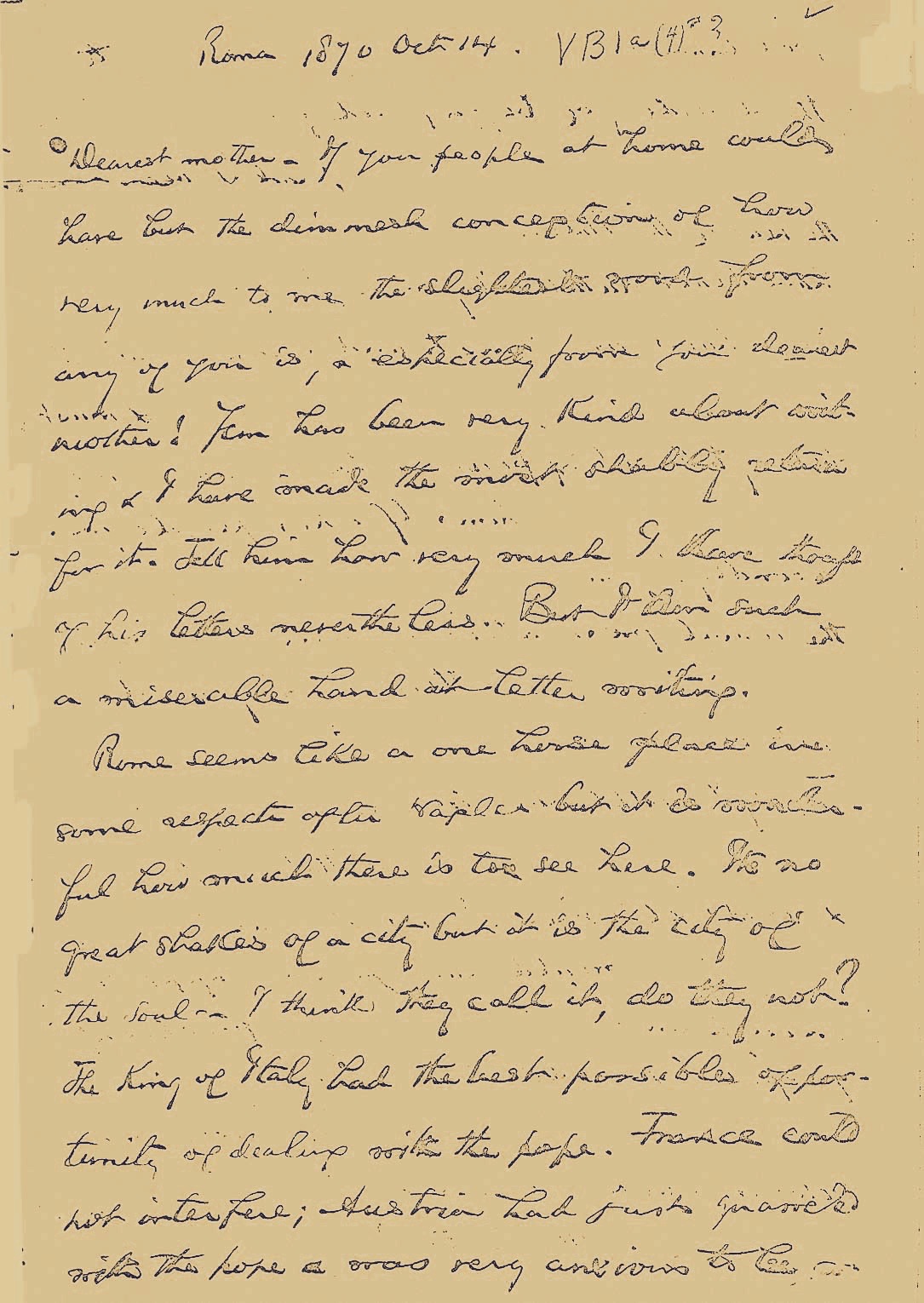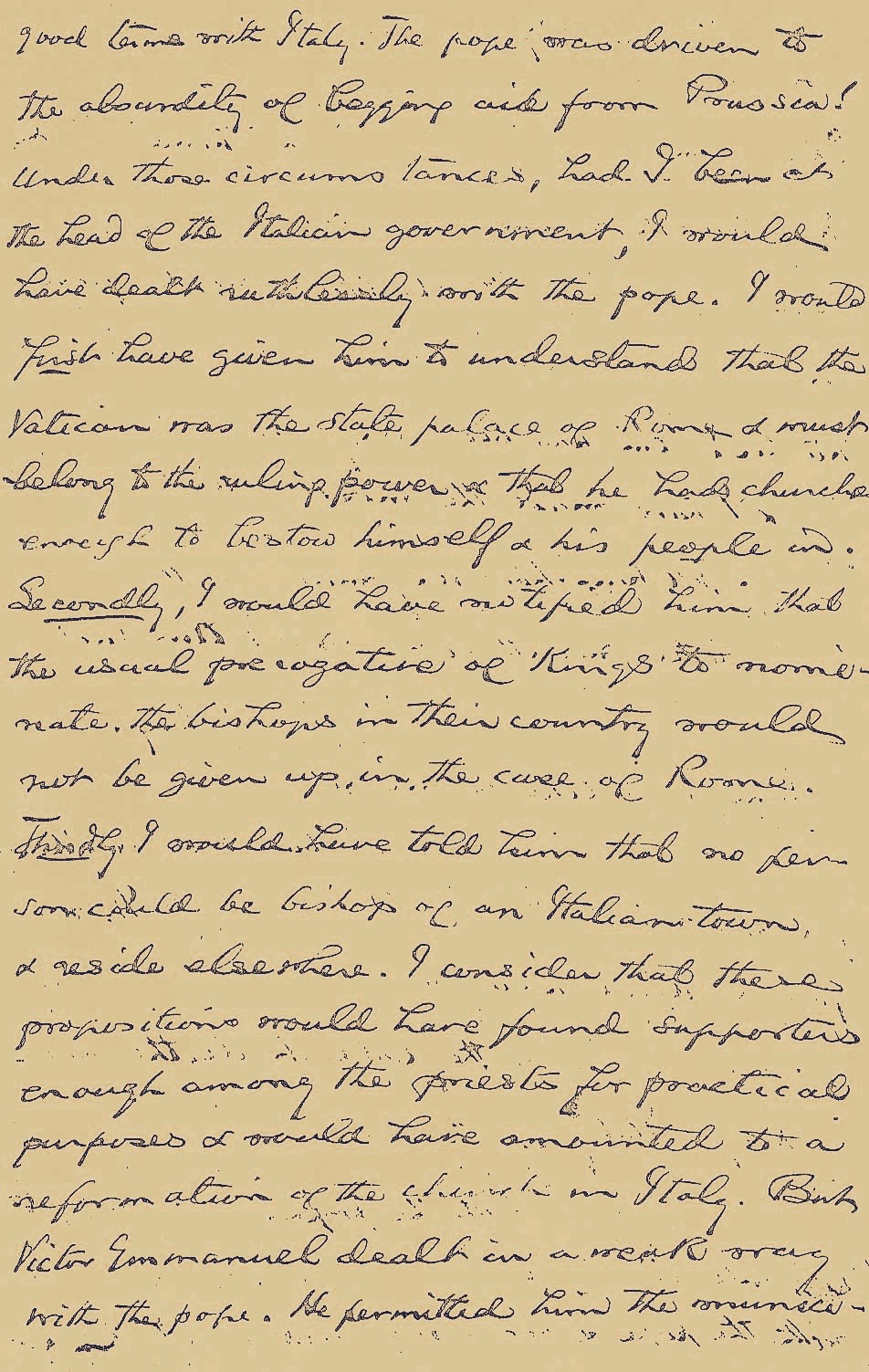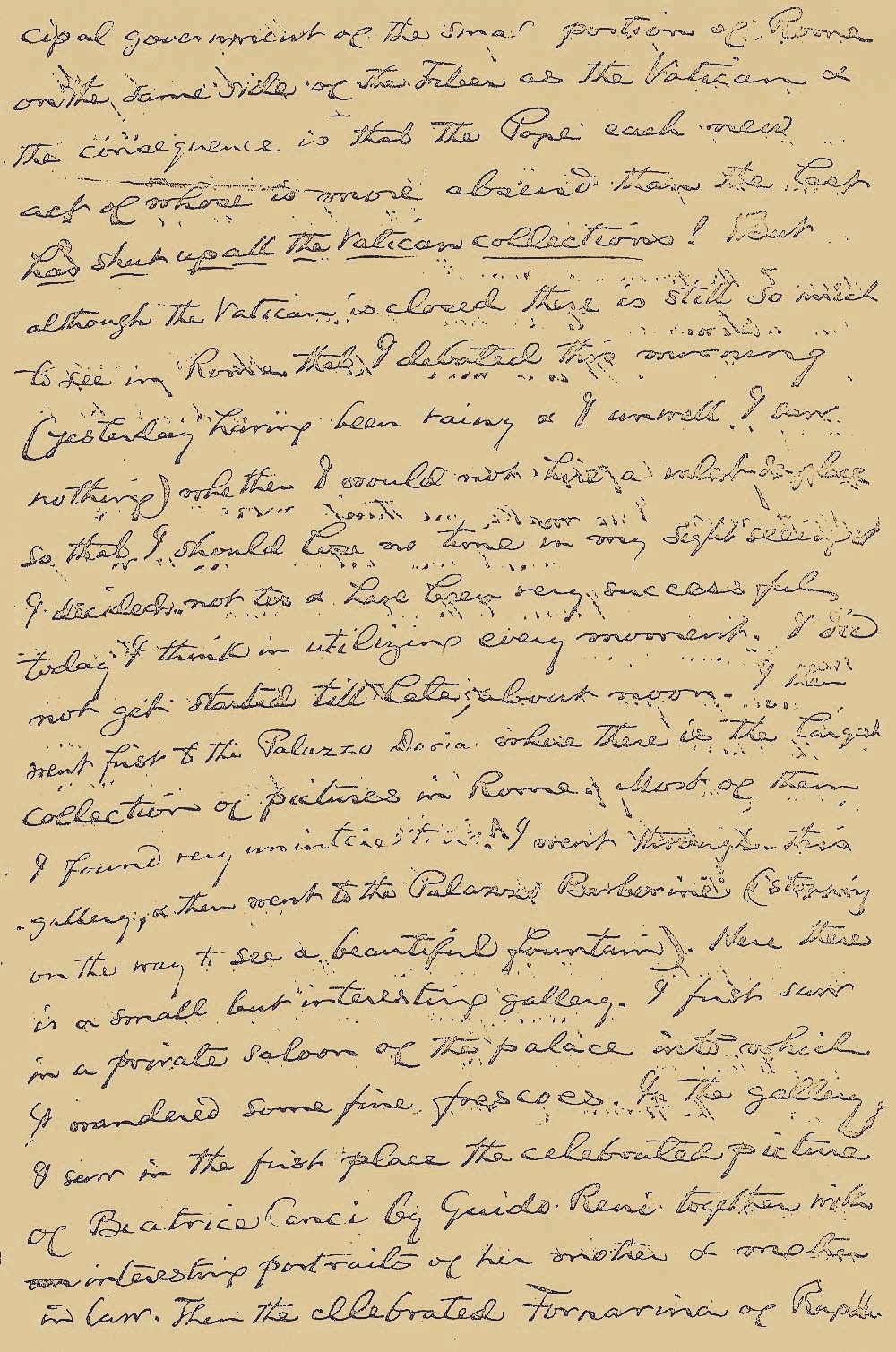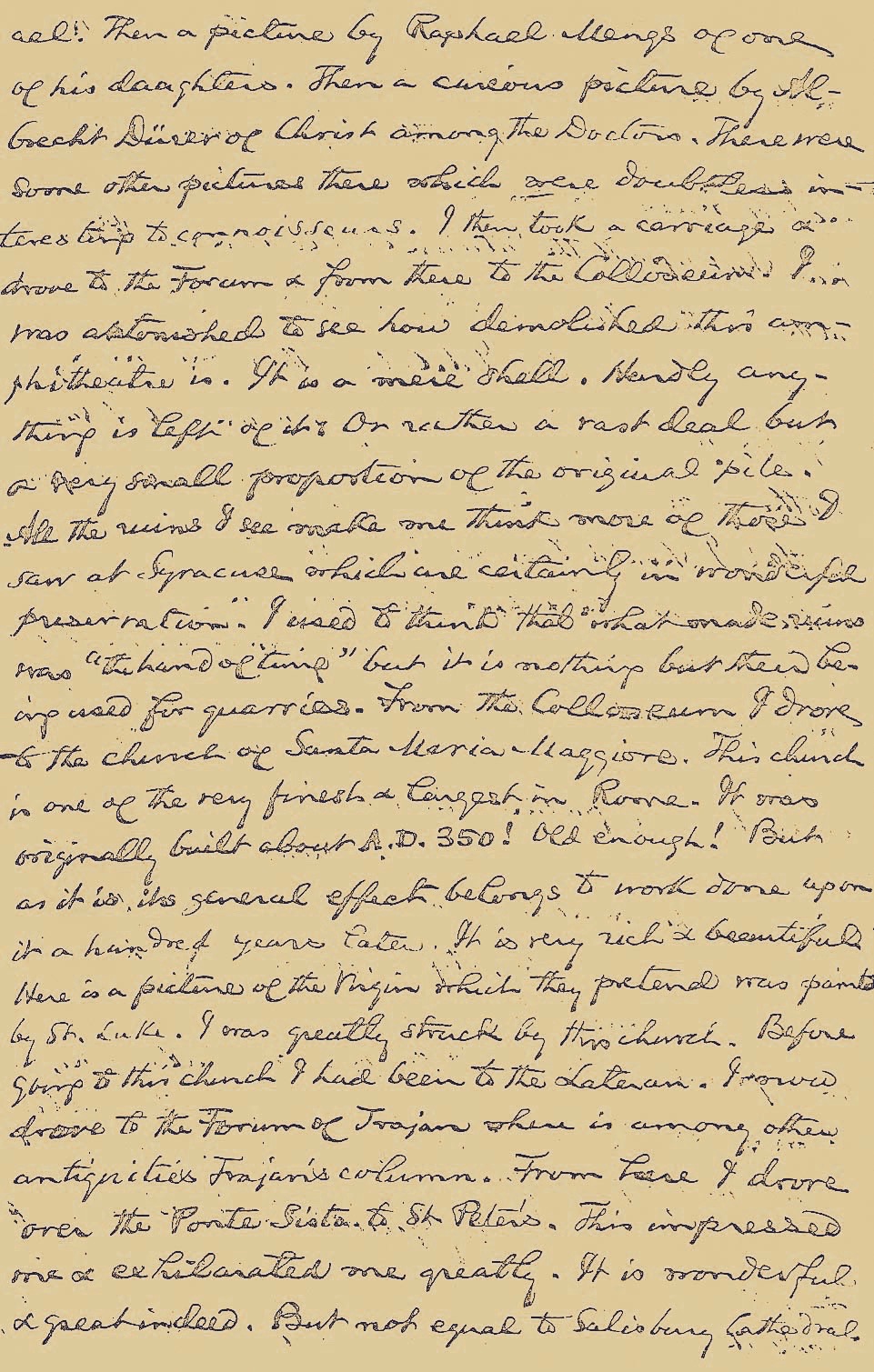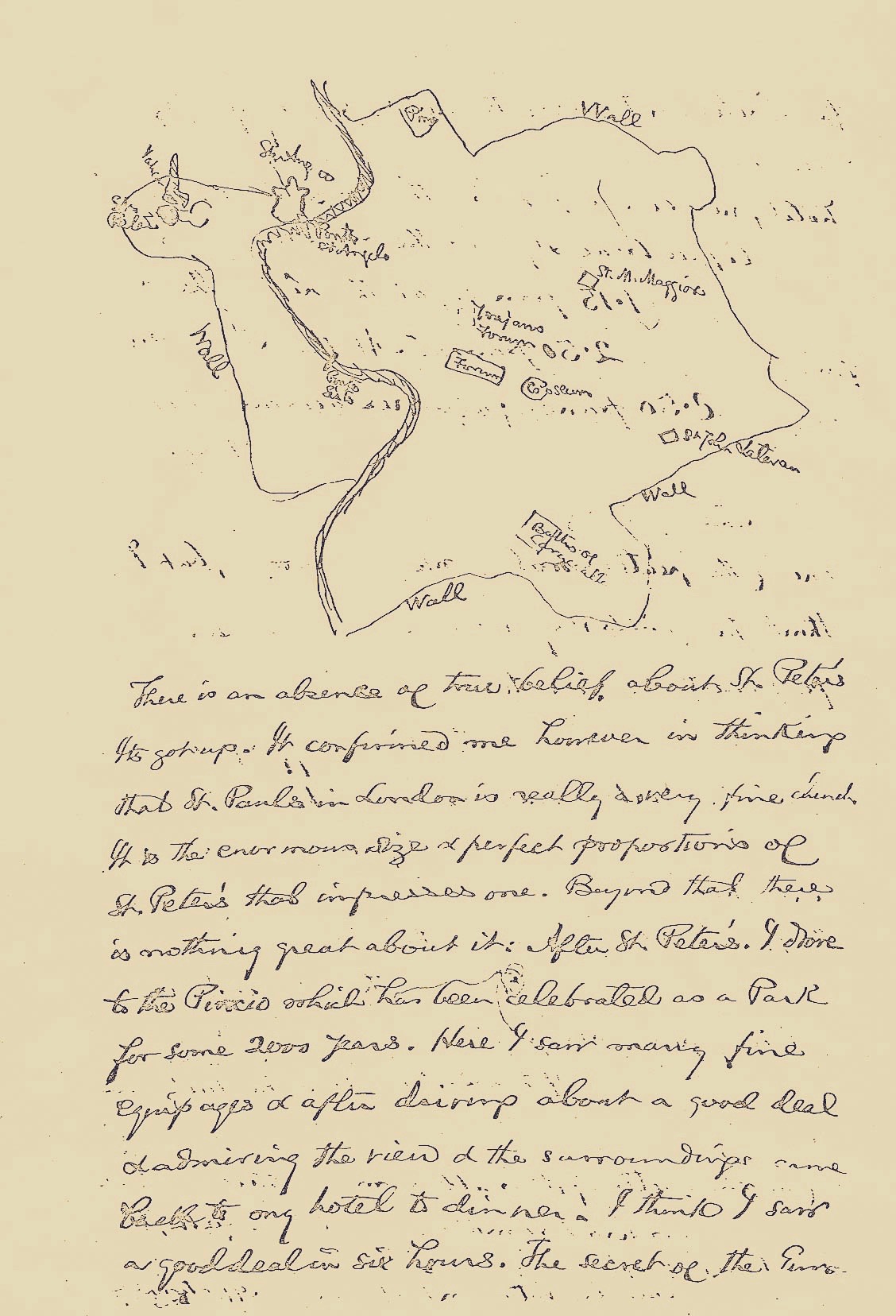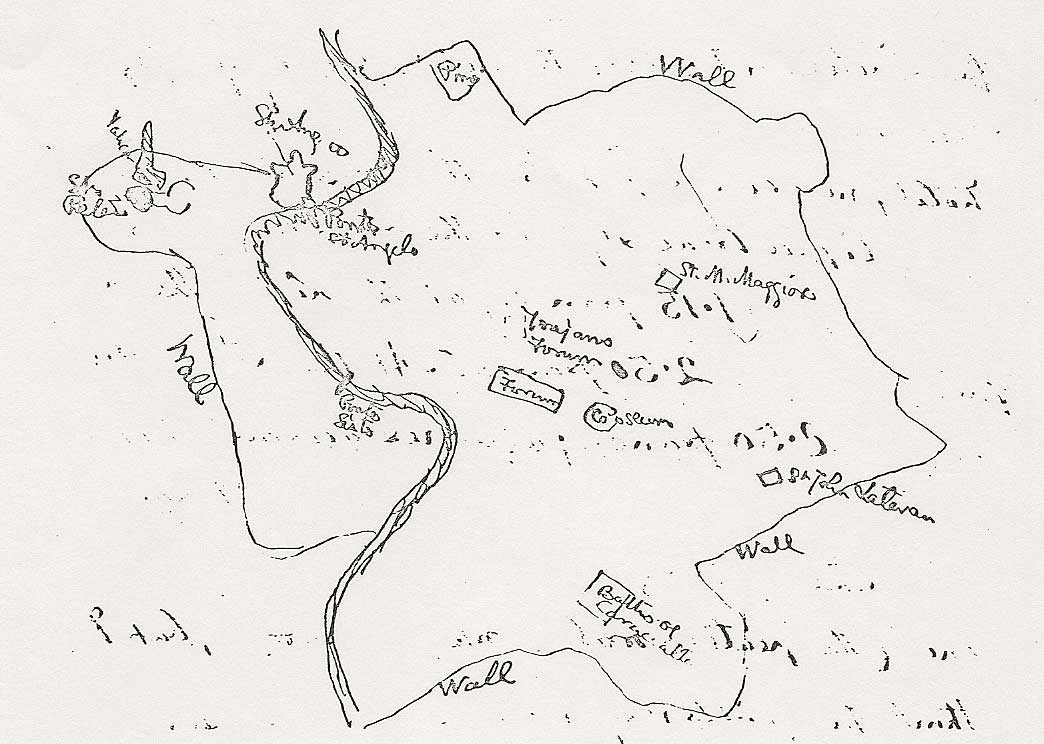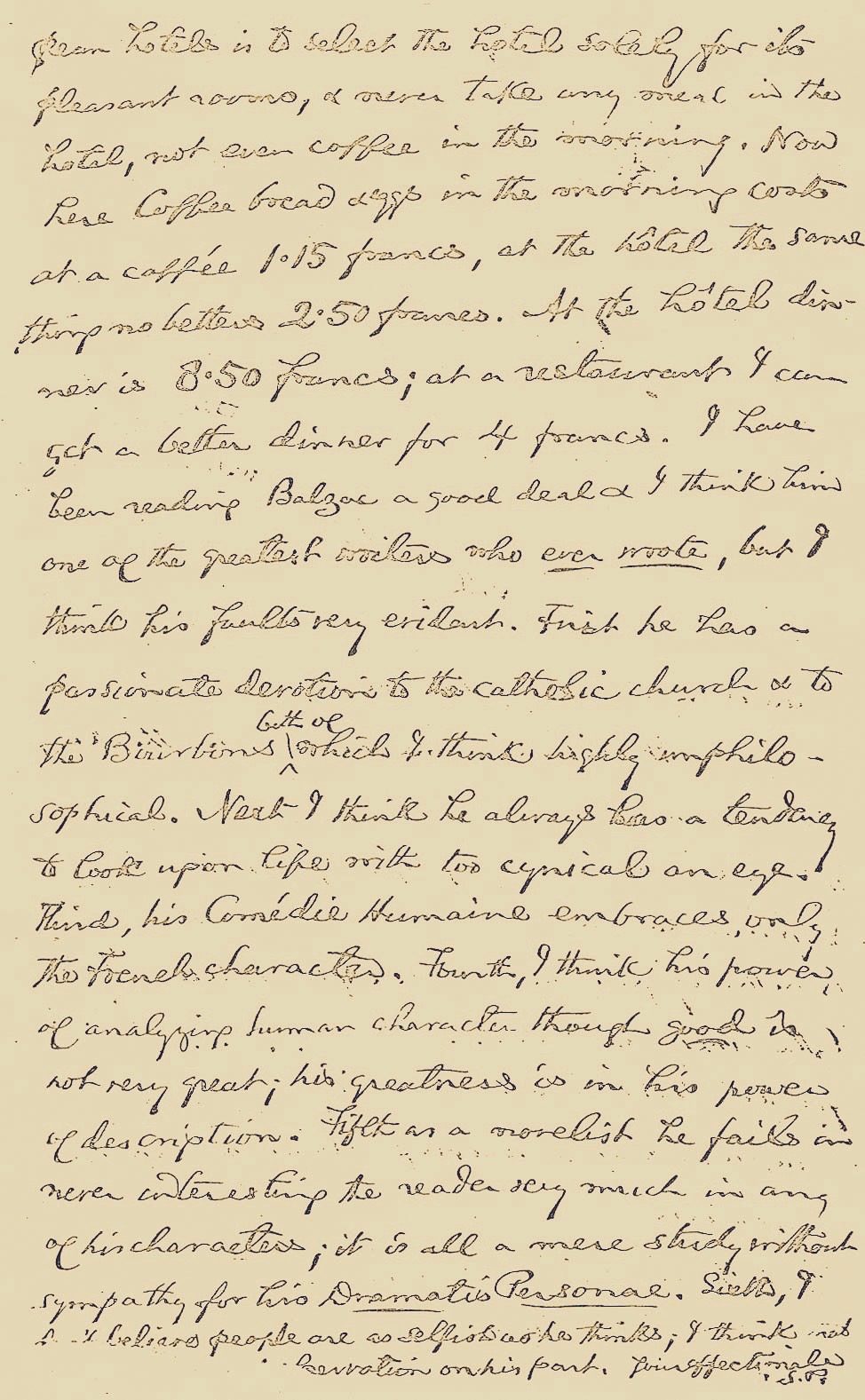| Dearest mother –If you people at home could have but the dimmest conception of how very much to me the slightest word from any of you is, & especially from you, dearest mother! Jem has been very kind about writing & I have made the most shabby return for it. Tell him how very much I have thought of his letters nevertheless. But I am such a miserable hand at letter writing. Rome seems like a one horse place in some aspects after Naples but it is wonderful how much there is to see here. It's no great shakes of a city but it is the city of the soul —I think they call it, do they not? The king of Italy had the best possible opportunity of dealing with the pope. France could not interfere; Austria had just quarreled with the pope & was very anxious |
